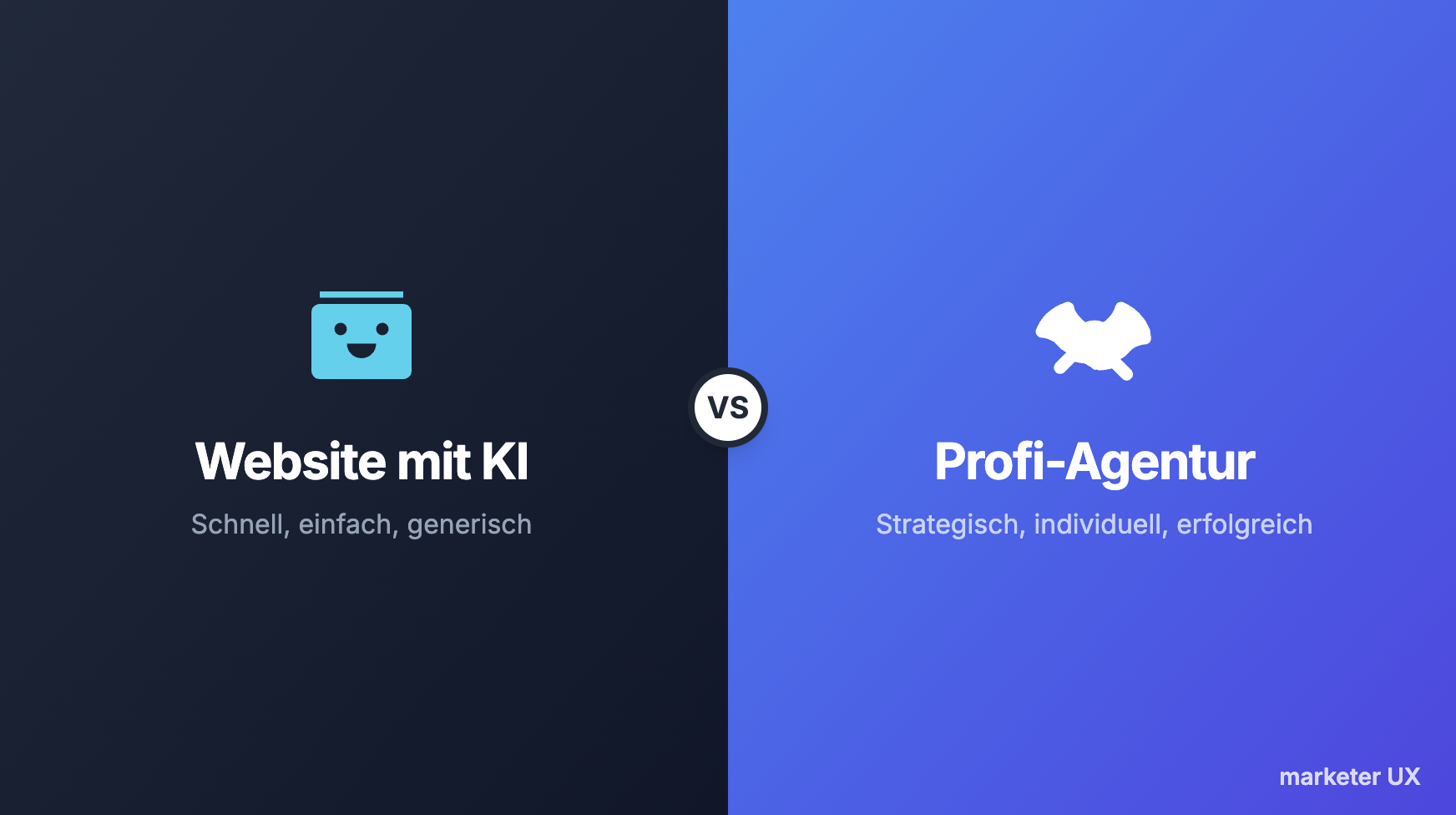Local SEO: The ultimate tips to attract local customers
What is local SEO?
Local SEO, also known as local search engine optimization, is a specific orientation within the broad field of search engine optimization (SEO).
The main goal of local SEO is to help companies be better discovered by potential customers in their immediate area.

As online searches for local businesses are increasing rapidly — from 90% in 2019 to 98% in 2022, according to a BrightLocal study — it is more important than ever for them to be active in local SEO. Forbes also reports that 18% of local searches result in a purchase within 24 hours. If that's not reason enough to really accelerate!
Why is local search engine optimization so important?
1. Increasing online visibility and local reach
Your business appears in search results when people near you search for products or services. This increases the chances that they are on Yours Start business and sign up for you decide.

Local SEO also strengthens your presence and brand recognition. With greater visibility on Google Maps and in search results, your business will be better known and visible in your region.
2. Acquiring new customers
Local searches often have a higher purchase intent, as users specifically search for products or services in their area and often use specific search terms. As a result, you can directly reach potential customers who are already interested in your offer and have a greater tendency to buy.
Local SEO also makes contact and the buying process easier for interested parties. This results in more visitors filling out contact forms and requesting information. There may also be an increase in walk-in customers as it is easier for people to find and visit your store.

3. Increasing competitiveness
By using local SEO, companies significantly increase their competitiveness. They are ideally positioned to survive in the local arena and to assert themselves against competitors.
This strategic commitment not only improves visibility, but also the relevance of your company. This not only increases the likelihood of being discovered by potential customers, but also the opportunity to open up new business opportunities and establish long-term customer relationships.

4. Building trust and credibility
A strong local SEO presence not only underlines your credibility, but also shows that you care about the needs of your local target group and are able to meet their needs.
In this way, you can build up a loyal and satisfied customer base that sees your company as a trustworthy and reliable point of contact in the region.

5. Cost-effective marketing
Local SEO offers a cost-effective way to attract new customers and promises a high return on investment (ROI).
This strategy enables companies to target local target groups in a targeted manner and to use their marketing spending efficiently. In doing so, you can dispense with traditional and expensive advertising measures such as print ads, television advertising or billboard advertising and still achieve broad local visibility and reach.
What are the local searches?

To make your local SEO strategy successful, it's important to understand that there isn't just one type of local search query. They fall into these main categories:
1. Direct searches:
- Sector + location: e.g. “Zahnarzt München” or “Friseur Berlin”
- Product/service + location: For example, “Order pizza Cologne” or “Fahrradhändler Hamburg”
2. Indirect searches:
- Questions related to location: For example, “Where can I eat well in Munich?” or “Which is the best gym in Berlin?”
- Searches with local attributes: e.g. “cheap” or “open 24 hours”
3. “Near me” searches:
- Industry + “near me”: For example, “restaurant near me” or “supermarket near me”
- Product/service + “near me”: For example, “Pizza near me” or “bike shop near me”
Additional types of local searches:
- Searches for opening times: For example, “Munich pharmacy opening times”
- Searches for reviews: For example, “Berlin Restaurant Reviews”
- Searches for events: For example, “Events in Munich today”
How does Google's local algorithm work?

Google's local search algorithm is extremely complex and takes various factors into account to deliver the most relevant and helpful results for local searches.
The most important ranking factors are:
1. Relevance:
- Key words: The relevance of the keywords in your website content, titles, and meta descriptions compared to the user's search query.
- Category: Your company's industry and category, which you specify in your Google Business Profile (Google My Business) and on your page.
- Content: The quality and relevance of your site's content to local searches.
2nd distance:
- User location: Google uses the user's location to calculate the distance between the company and the user.
- address: The correct and complete address of your company in your Google Business Profile (Google My Business) and on your website.
- “Near me” searches: Here, Google prioritizes companies that are close to the user's location.
3. Prominence:
- reviews: The number and quality of reviews from your Google Business Profile (Google My Business) and other review platforms.
- Local quotes: Your company's listings in local online directories and sites.
- Backlinks: The number and quality of backlinks your website receives from other sites, particularly local sites.
- Social media: The number of followers you have and interactions on your social media profiles.
Taking these ranking factors into account can result in you becoming part of the coveted map pack and achieving outstanding results in local search results through local SEO.
What is a map pack?

The map pack, also known as Local Pack or 3-pack, shows a list of three local businesses on the Google Maps page when users search for a specific term near them.
The map pack appears above the organic search results and therefore offers the listed companies a high level of visibility.
Importance for local companies:
Placement in the map pack can lead to a significant increase in visitor numbers and sales.
However, despite the clear benefits of local SEO, 58% of companies fail to optimize their website. Only 30% have a strategic plan to benefit from this traffic.
In short: Let us make sure that your company is in that 30% and makes full use of local SEO opportunities!
10 tips for local SEO optimization for TOP rankings in local search results
1. Optimize your Google Business Profile (Google My Business)

1.1 Fill everything in your Google Business Profile from:
- Name: The official name of your company.
- Category: Select the main category that best describes your business.
- address: Provide your full address, including street, house number, zip code, and city.
- telephone number: Please use your current phone number.
- URL: Enter the URL of your webs.

- Opening hours: Share your exact opening hours, including lunch breaks and weekends.
- description: Write an informative and appealing description of your company. Highlight your products, services, unique selling points, and mission.
- Photos and videos: Upload high-quality photos and videos of your company, team, and products.

- Attributes: Select relevant attributes that describe your business, such as “barrier-free” or “WiFi available.”
- Products and services: Include a list of your products and services, including prices and photos.
- Questions and answers: Answer frequently asked questions from customers and users who are searching.
1.2 Ask for reviews:

After purchasing or using your service, politely ask customers for a review on Google My Business. It's important to respond to all reviews, both positive and negative, to appreciate them and answer their questions. This shows commitment and appreciation to your audience.
1.3 Use the contribution function

Stay present by posting regularly to inform your audience about the latest offers, news, events, and special promotions. Experiment with different post formats, such as text, photos, videos, and events, to make your posts varied and appealing. Make sure your posts are relevant, informative, and interesting.
1.4 Verify your profile:
To use all Google My Business features, it's important to verify your profile. Google will send you a verification code via mail to your company's address. Enter this code in your Google My Business profile to successfully verify your profile and unlock all features.
1.5 Actively manage your profile:
Keep your profile up to date by regularly adding new information, photos, and posts. Respond to customer questions and reviews in a timely manner to meet their needs and maintain a positive image. Use the Insights featureto gain valuable insights into your target audience and adjust your marketing strategy accordingly.
2. Build local backlinks

2.1 Create profiles in local online directories and websites:
Browse relevant local online directories and sites in your industry and create profiles with comprehensive information about your business. Make sure that the information in all profiles is consistent and take advantage of the opportunity to get backlinks from these directories and websites to your own website.
Relevant online directories for your company:

The selection depends heavily on your industry and target group. Here are a few established platforms that may be relevant to many companies:
- General directories: Tripadvisor, OpenTable, Foursquare.
- Germany-specific directories: The local, yellow pages, Jameda, Kununu, your local city portal.
- Additional options: Industry-specific directories and regional platforms.
2.2 Request backlinks from local businesses and organizations:
Identify local companies and organizations in your industry that are potentially ready to work with you. Contact them politely and ask for a backlink on their site.
In return, offer to place a relevant backlink on your website if this is beneficial to both parties.
2.3 Use local events and events to generate backlinks:
Consider sponsoring local events and events in your industry. Offer to hold talks or workshops at these events. Take the opportunity to get backlinks from organizers' websites and strengthen your online presence.
3. Integrate Local keywords in website content

3.1 Use relevant local keywords
Start with thorough keyword research to identify local keywords that are relevant to your business. Of course, incorporate these keywords into your website texts, titles, and meta descriptions to improve your local visibility.
3.2 Build Local Landing Pages
Develop custom landing pages for your key products and services that are optimized for local searches. Use local keywords in titles, meta descriptions, texts, and call-to-action buttons to target your target group.
3.3 Use local keywords in blog posts and news articles
Write blog posts and news articles on local topics and integrate local keywords into titles, meta descriptions, and texts to increase your relevance for local searches. Link to your local landing pages in these posts to increase traffic.
Additional tips:
Optimize your image file names and alt texts with local keywords, and also use them in your social media posts and online ads to further strengthen your local presence.
Here is an example of a horticultural company in Cologne:
Local keywords:
- “Gardener Cologne”
- “Gartenpflege Köln”
- “Lawnpflege Köln”
Website texts:
- Home page: “We are a horticultural company in Cologne that specializes in garden maintenance, lawn care and tree trimming.”
- Landing page: “Gartenpflege Köln - We offer professional garden maintenance in Cologne and the surrounding area.”
- Blog post: “5 tips for perfect lawn care in autumn”
Meta descriptions:
- Home page: “Gardening companies in Cologne - garden maintenance, lawn care, tree trimming”
- Landing page: “Gartenpflege Köln - Professional garden maintenance in Cologne and the surrounding area”
- Blog post: “5 tips for perfect lawn care in autumn - Gartenpflege Köln”
Image file names:
- garten-koeln.jpg
- rasenpflege-koeln.jpg
- baumschnitt-koeln.jpg
Alt texts:
- garten-koeln.jpg: “Garden in Cologne”
- rasenpflege-koeln.jpg: “Lawn care in Cologne”
- baumschnitt-koeln.jpg: “Tree cutting in Cologne”
Social media posts:
- Facebook: “We are a horticultural company in Cologne that specializes in garden maintenance, lawn care and tree trimming. Contact us today for a free quote!”
- X: “Gartenpflege Köln - Professional garden maintenance in Cologne and the surrounding area. Request a quote now!”
4th Generate positive reviews

4.1 Ask your customers for a review on your Google Business Profile (Google My Business) and other review platforms
After purchasing or using your service, send your customers a friendly email or message asking for a review. Include a direct link to your Google My Business profile and other relevant review platforms in your message.
Encourage people to review reviews through incentives, such as discounts, to increase their participation.
4.2 Respond to reviews, both positive and negative
Demonstrate to your customers that their opinion counts by responding to all reviews, whether positive or negative. Show gratitude for positive feedback and offer solutions to any issues raised in negative reviews. This active interaction builds customer trust and shows that you take their needs seriously.
5. Optimize your website for mobile devices

With the steadily growing use of mobile devices for local business searches, it is crucial that your website also offers an optimal display on these devices. Statistics show that 64.4% of Internet access in Germany was via mobile devices in 2023. Google also favors mobile-friendly websites in its search results.
Important steps for search engine optimization of your website:
5.1 Make sure your page is responsive
Your website should automatically adjust to the screen size of each device to ensure an optimal user experience. A responsive design ensures that your website looks good on all devices and is easy to navigate, regardless of screen size.
5.2 Make sure your website loads quickly
Users tend to jump off pages that take too long to load. Optimize your website load times by compressing images and videos, using caching, and optimizing server performance. Fast loading time not only improves the user experience, but also has a positive effect on your website's ranking in search engines.
5.3 Guarantee readability

Use fonts that are easy to read and enough space between lines to improve readability on mobile devices. Structure content with paragraphs and headings to make it easy to read. Remember that mobile users are often on the go and therefore prefer clear and concise information.
5.4 Make navigation easy and intuitive
Reduce the number of menu items and use large, easy-to-recognize buttons to make it easier to navigate on mobile devices. Place important information and features in easily accessible locations so users can find them quickly. Intuitive navigation is critical to keeping users on your website and achieving their goals.
5.5 Use unique call-to-action elements (CTAs) that are optimized for mobile devices

Make it easy for users to call you, get directions, or make an appointment using mobile-optimized CTAs. Place these CTAs in strategic places on your website and make them eye-catching but not intrusive. A clear call to action makes it easier for users to get in touch with your company and increases your website's conversion rate.
6. Be active on social media

Local SEO is designed to improve a company's visibility in local search results from Google and other search engines. Social media plays an important role in this, as it enables companies to interact directly with their local target group, share relevant content and strengthen their online reputation.
In order to make optimal use of the benefits of social media for local SEO, a few steps are required:
6.1 Create and optimize profiles on relevant platforms
It is important that every company sets up profiles on the main social media platforms for their target audience and provides them with complete information and appealing images.
6.2 Share local content and attract attention
By regularly posting local content, photos, and videos, you can attract the interest of your local audience. With appealing visual content and active participation in local online discussions, you can increase your company's relevance and visibility.

6.3 Interacting with the community and building relationships
Direct contact with interested parties and local companies is of great importance. By answering questions, participating in discussions and working with opinion makers, you can build a great network and strengthen local SEO.
6.4 Use analysis tools and optimize the strategy
With the help of social media analysis tools, you can measure the success of your activities and adjust your strategy in a targeted manner. Which content works well and which less? Where do your posts end up in the local search? How many prospects were gained through social media? These insights help you continuously improve your social media activities.
7. Analyze the competition
In order to stand your ground in local competition, it is crucial to understand your competitors' practices. A thorough analysis of your competitors' local SEO strategy can provide you with valuable insights and help you refine your own strategy.

Here are a few things to look out for:
Keyword research:
- What keywords are your competitors using in their titles, meta descriptions, and content?
- Which keywords do they rank for in local search results?
Local directories:
- In which local directories are your competitors listed?
- What information is included in your entries (e.g. address, telephone number, opening hours)?
- Do they have positive reviews from customers in the directories?
Social media:
- Are your competitors active on social media?
- Which platforms do they use (e.g. Facebook, Twitter, Instagram, LinkedIn)?
- How do they interact with their followers?
- Are they using social media to attract local customers?
Website analysis:
- What is the overall quality of your competitors' website?
- Is the website mobile-friendly?
- Is the website easy to navigate?
- What content do they offer (e.g. blog articles, videos, FAQs)?
Backlinks:
- Which websites link to your competitors' website?
- Are the backlinks of high quality?
Additional points:
- Analyze your competitors' online reviews and local marketing campaigns
- If possible, visit their stores or offices to get an insight into their customer experience.
Now that you've analyzed your competitors' Local SEO strategy, you can take the following steps:
- Identify the strengths and weaknesses of your competitors.
- Use the insights to improve your own strategy.
- Set yourself apart from the competition by offering something unique and valuable.
Tip: Repeat the analysis regularly to stay up to date with the latest developments.
8. Acquire new customers from local influencers
Influencers have already built a loyal following in your target audience and can help you reach out to them and build trust in your brand.

What you should consider when integrating local influencer marketing into your local SEO strategy:
8.1 Identifying the right influencers:
- Which influencers are active in your industry?
- What is the target group of these influencers?
- Do the influencer's values and personality match your brand?
- What is the influencer's engagement rate?
8.2 Types of cooperation:
- Product placements: The influencer presents your product or service in their posts.
- Coupons and discounts: The influencer offers exclusive offers to his followers.
- Sweepstakes: The influencer organizes a competition in which your product or service is raffled off as a prize.
- Blog articles and videos: The influencer creates content about your company or products.
- events: The influencer helps you organize and carry out local events.
8.3 Performance measurement:
- Track the number of website visitors that come from the influencer's posts.
- Analyze the number of conversions (such as purchases, signups).
- Track social media interactions (e.g. likes, comments, shares)
- Ask your customers how they found out about you.
Tip: Maintain long-term cooperation with influencers to build a trusting relationship and achieve long-term success.
9. Local SEO monitoring
It is crucial to continuously monitor your local SEO results in order to evaluate and optimize the success of your strategy. As a result, you can better understand what's working and what's not, and tailor your efforts to effectively reach your target audience in your region.

Here are a few important things to consider when monitoring your local SEO results:
Site traffic:
- How many visitors come to your website from your region?
- Which pages are visited most frequently?
- Where do people come from (e.g. organic search, local search, social media)?
Key words:
- Which keywords do you rank for in local search results and which of them generate the most traffic?
- How has your ranking changed over time?
conversions:
- How many visitors from your region make a purchase or contact you?
- What is your conversion rate for local visitors?
- Which channels generate the most conversions?
reviews:
- How many positive reviews do you have in local directories?
- How has the number of reviews changed over time?
- What do customers say in their reviews?
10. Continuous optimization
Local SEO is a dynamic process that requires continuous adjustments. Search engine algorithms are constantly changing, and new competitors are entering the market. That's why it's essential to regularly revise and improve your website and strategy so that users can find it when they search.

10.1 Update your website regularly with new content.
- Create blog articles that are relevant to your target audience.
- Add new products or services to your website
- Post videos and photos that showcase your company and products.
10.2 Use relevant keywords in your content and titles.
- Do keyword research to find out what keywords your target audience is looking for.
- Use these keywords in your titles, meta descriptions, content, and website URLs.
10.3 Maintain your profiles in local directories.
- Make sure that your entries in local directories are accurate and up to date.
- Add photos and videos to your listings
- Ask your customers to leave reviews on local directories.
10.4 Analyze your results and adjust your strategy
- Track your local SEO results using tools like Google Analytics and Google Search Console.
- Analyze your results to find out what works and what doesn't.
- Adjust your strategy based on your analysis
10.5 Stay up to date on the latest trends in search engine optimization.
- Read blogs and technical articles about local SEO.
- Attend conferences and webinars about local SEO.
- Subscribe to newsletters and RSS feeds from websites that focus on local SEO.
conclusion
Local SEO is crucial for companies that want to be successful in their region. Through targeted optimization for local search queries, companies can improve their visibility, attract new customers and build long-term customer relationships.
If you need professional assistance in improving your local SEO or have any questions about it, we're here for you. Let's work together to get your business up in local search results. Just arrange a non-binding conversation, and we're here to help!
Common questions about local SEO
Are local marketing and local SEO the same?
Local SEO is part of local marketing, which improves online visibility for local search. However, local marketing goes beyond online measures such as local search engine optimization and also includes offline activities such as local advertising and event sponsorship to reach local customers.
Which companies benefit the most from local SEO?
- Local companies: Restaurants, cafes, retailers, craft businesses, service providers, etc.
- Companies that rely on walk-in customers: bakeries, hairdressers, boutiques, etc.
- Companies that are active in a specific area: e.g. taxi companies, cleaners, gardeners, etc.
- Companies that want to use online reviews: Hotels, restaurants, doctors' offices, etc.
How important is local search for Google?
Very important. Giving users the information they're looking for is a core part of their mission, and that includes helping them find local businesses and services.
Here are a few reasons why local search is important to Google:
- Increases user satisfaction: When people do local searches, they want to find relevant results quickly and easily. Local Search helps Google do just that.
- Bringing users and companies together: Local Search enables companies to connect with potential customers in their area.
- Contributes to more accurate search results: By taking location into account when searching, Google can provide users with more relevant results.
- Make Google Maps more valuable: Local Search is closely linked to Google Maps, and both together provide users with a comprehensive solution for finding local information.
FAQ
How do I get to number 1 on Google
To get to number 1 on Google, you should definitely create an SEO-optimized website. You should also create a Google MyBusiness entry and correctly set up the entire schema markup of your website. After this has been done, submit your website to Googel in the Google Search Console and, after 2-3 weeks, check which key terms Google has classified your website for. We are happy to help you with this, book your free one here Potential analysis.




























rev%20komprimiert.jpg)
.jpg)






.jpg)
.jpg)













